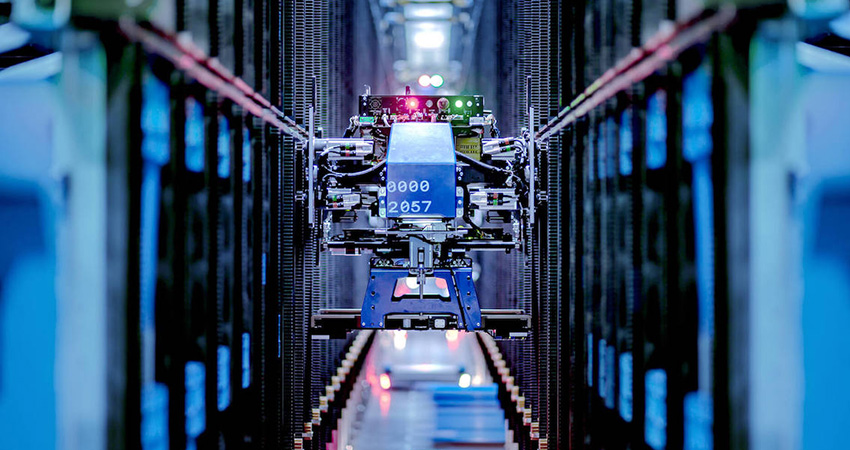Danish global shipping and logistics giant A.P Moller-Maersk is jumping into ecommerce fulfillment, opening a micro fulfillment center in Dallas powered by technology from Israeli firm Fabric that will initially serve one client in health and wellness but could be expanded to a multi-tenant operation.
The 38,000-square-foot facility, leased by Maersk, will utilize Fabric’s robotic automated storage and retrieval system (AS/RS) that can handle up to 25,000 SKUs. It will be fully operational this fall. Fabric, founded in 2015, has raised $375 million to date and has offices in Tel Aviv and New York. Maersk has 700+ container vessels in service, working more than 500 ports in 130 countries.
The Dallas location was selected based on rail access to the ports of Los Angeles and Long Beach, a central location enabling 2-3-day parcel shipping to the majority of the continental U.S., competitive real estate rates and a good labor pool, said Erez Agmoni, Maersk’s global head of innovation, logistics and services.
“This is a first site for us,” Agmoni said. “After we have demonstrated its performance under a variety of real-world conditions, we would definitely consider adding more locations where the solution is a good fit to customer needs.” He added Fabric was chosen as a partner because of its “superior solution that offers advantages in terms of speed and accessibility to the products inside the system.”
Agmoni said Maersk has been expanding its logistics assets, especially North America and Asia, integrating acquired assets from Pilot and LF Logistics, with a total base of 452 facilities. It aims to connect its freight and shipping operations to logistics operations globally.
Avi Jacoby, who took over as CEO of Fabric 18 months ago, said the company has shifted its business model under his leadership from a focus on services to selling its systems to retailers and 3PLs to run themselves. The automated nature of the technology requires very little human support, he said. Its largest client to date is Israeli pharmacy chain Super-Pharm.
“We started in grocery, which is really the north star of Fabric,” Jacoby said. “It’s a domain no one has really solved so far in terms of significantly positive unit economics. Our technology and system are a good fit for grocery, which is way more complex than general merchandise or CPG. But it can be optimized to support them as well.”

